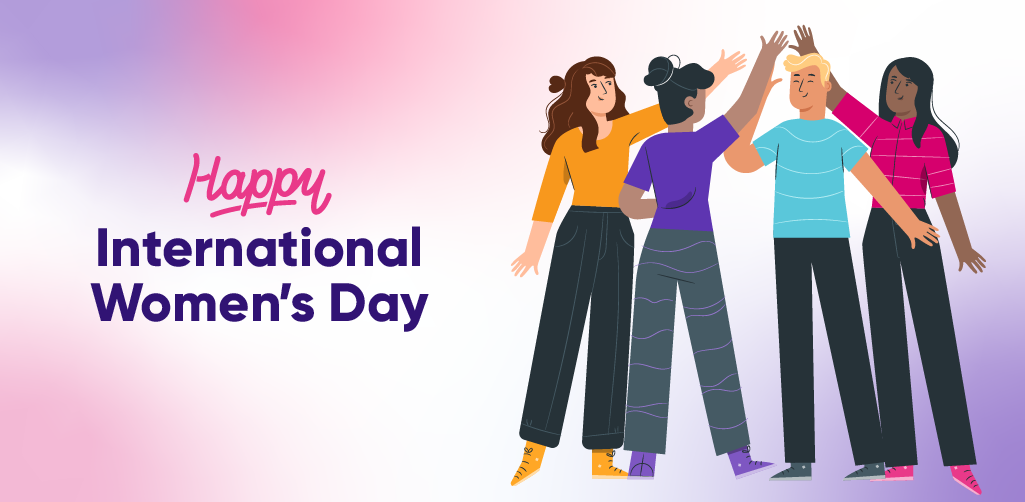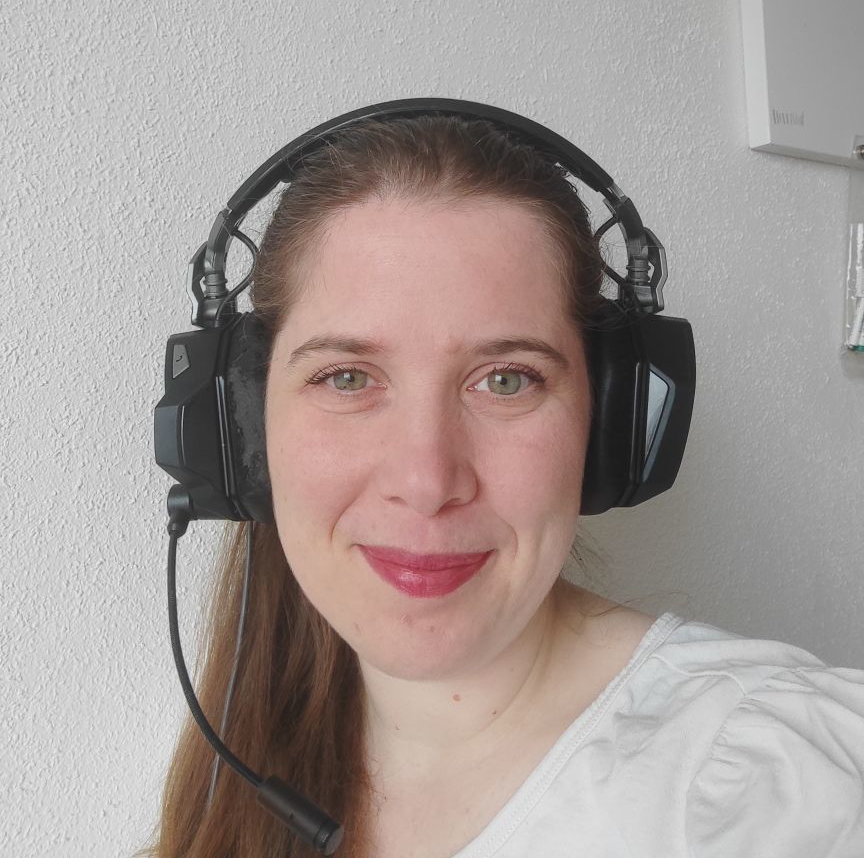
Lea Bradacova - Cloud Engineer
What was your first job?
At the beginning, I started working as an administrative assistant. But my first IT job was as a junior sysadmin in a small Czech construction company.
What was the journey to your current role?
It was quite curvy. When I was 28, I wanted to move from an administrative to a more technical position in the IT company where I was employed. At that time, I was told, "You're a woman in the support department. Women leave this department to go just on maternity leave or leave the company." I took it as a challenge, started learning, and eventually left. I began learning Linux OS when the first generation of Raspberry Pi was released.
My goal was to build my own home server with the help of a friend, so I started a blog about the learning process on a Czech IT website. That's how my future employer found me - the leader of an IT department in a small company needed a successor and offered me a job. So, I started to learn the sysadmin job. Now, ten years and two companies later, I'm cooperating on the most impressive projects I've ever worked on with such smart and friendly people that I still can't believe.
What was it like for women in this industry when you first joined?
At that ancient time, IT was still largely considered a male-dominated field. But I was used to it and jokes about me being "half man" because I loved technology were quite normal. Yes, I heard countless jokes about women having menstruation when not like stupid ideas of colleagues, women having a small brain, and all those stupid daddy jokes. I didn't take them badly. I took them as men processing that there is a woman around and it was new for them.
But in my first real IT job, I realized that it didn't have to be like that. As more people cooperated and didn't compete at every step, the less toxic the atmosphere became. And being a jerk is not gender-based.
What career advice or expectations were common for women when you were starting your career?
Career expectations in the ancient times were to be a mother, caretaker, to work as an administrative force or in some soft branch. In fact the expectation was to take care of children and family, to make basic money. When a woman was ambitious at work it was taken as selfishness. Women take care, men provide. That was the model that I'd been taught. If there was a woman in a higher position, she had to be much harder and with better outcomes than men in an equivalent position.
What does “equity” in the workplace mean to you?
Equity in the workplace is very important to me. Not just in terms of dividing between men and women. We are all people, and we all differ in some way. Prejudging people based on their gender, nationality, skin color or any other characteristics that are unrelated to individual talents and abilities or personality may be interesting for sociologists or medicine, but in real life and society, it's just a crutch for the fearful. Moreover, it's nonsensical and uneconomical to waste potential. Therefore, equity is important because homogeneous environments and glass ceilings do not provide opportunities for personal or social development, and consequently, not even for economic development.
What’s changed for women since you joined the workforce?
Many things. Firstly, girls are more frequently motivated to choose a career in IT, as there are many more opportunities for self-education in IT, including through projects such as PyLadies or Czechitas. Women in IT are no longer seen as "rare birds" or "weirdos," just as men who take care of their family and want to know their children more than just as little people sleeping in their apartment.
Despite the focus on performance, the work environment itself is much friendlier and more humane than it used to be even 10 years ago. Furthermore, I’m lucky to work at Ataccama where I haven’t met anything dividing people nor in the matter of gender nor nationality nor anything stupid like this. (And btw YES, we have pads, cream, and deodorant in the bathrooms, even in the shared ones. And I love it.)
What advice would you give to young women starting their careers?
When someone starts explaining to you what you should or should not do just because you are a woman, they probably don't want to help you but rather impose their own worldview on you. We all have doubts about ourselves, just beware of 'Impostor syndrome.' You're not alone in this. Do what interests and excites you, people around you will eventually catch up with it. Don’t be shy to ask questions or for help, there is always someone who can help you.
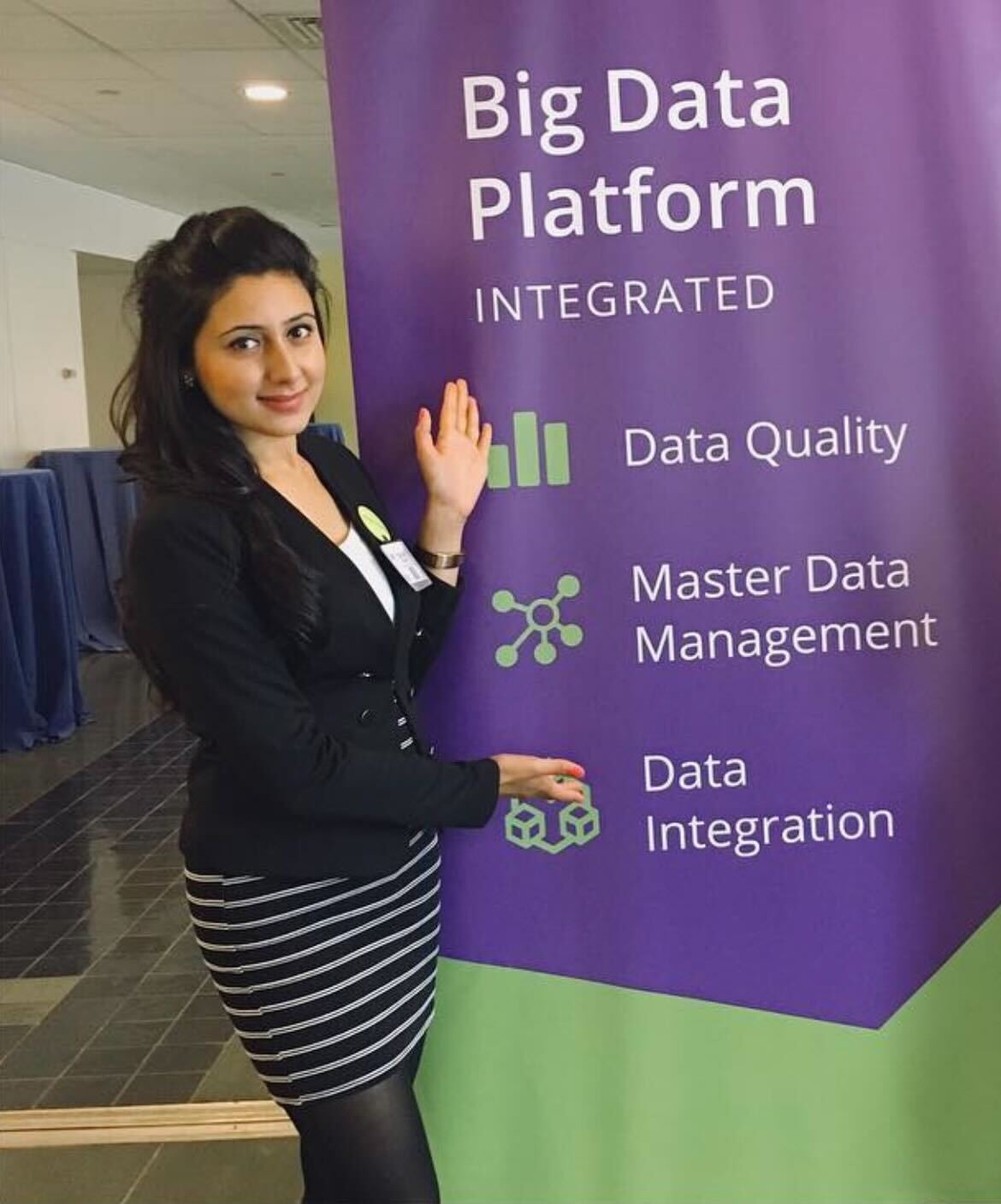
Khushi Sharma - Director of Business Development
What was your first job?
My first job was as a Project Assistant at Ryerson University's Privacy & Big Data Institute. I had the privilege of working directly under Dr. Ann Cavoukian, Ontario's former Information and Privacy Commissioner. I'm grateful I had a strong female role model to look up to when I first started my career as a young woman.
What was the journey to your current role?
At Ataccama, I began my career as an Account Executive. I got the chance to contribute to different roles within the organization over the course of the 6+ years. For instance, starting the business development team, managing large enterprise customers, and developing strategic alliances with partners from our ecosystem.
What was it like for women in this industry when you first joined?
When I first started, I noticed many gaps in tech roles where women were underrepresented. However, I have seen the gaps close over time, and there is a greater presence of women in leadership roles and women in tech roles at Ataccama and in the industry.
What does “equity” in the workplace mean to you?
To me, equity in the workplace means being given an equal opportunity, having the same resources and support as other colleagues and receiving fair treatment.
What advice would you give to young women starting their careers?
Take advantage of university/college Mentor & Mentee programs available - this is a great way to get started! Don't be afraid to reach out to professionals in roles you are aspiring to have for career advice and tips. Get a chance to shadow someone in the role you want to have. Collaborate with people from whom you can learn and always remember that growth and comfort do not coexist!
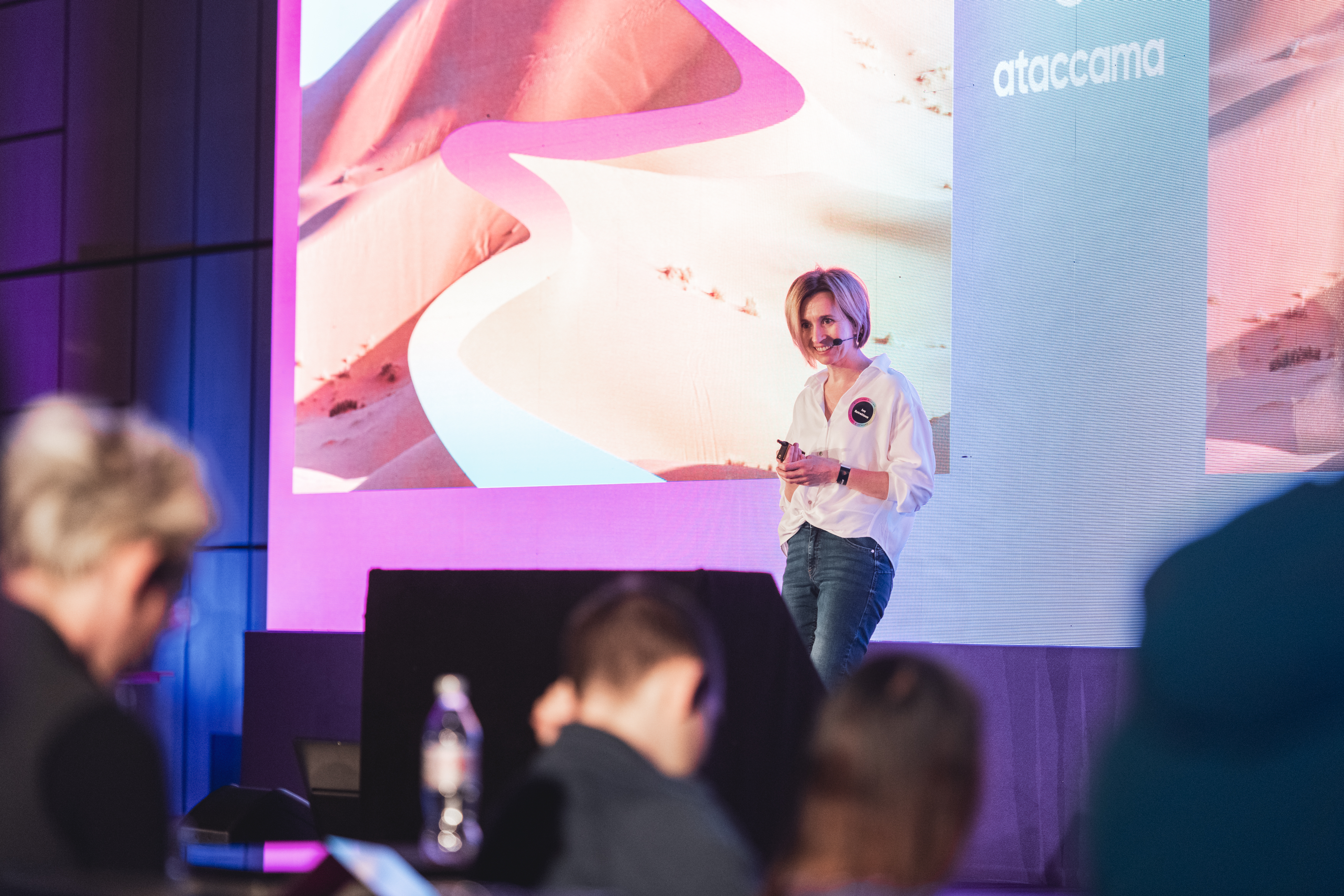
Iva Rotreklova - VP of People & Culture
What was your first job?I worked as a recruiter during my studies at the university and after graduation I started working as a clinical psychologist & psychotherapist (primarily with drug and alcohol-addicted women) - for some time, I had the two jobs in parallel, sitting at two chairs and living in two different worlds.
As mentioned above, it started with recruitment and clinical psychology & psychotherapy through people business partnering roles, a few managerial and process-related positions (but all in HR/People area), then my current role. Interestingly, I tend to stick with companies starting with A - AVG, Avast, and now Ataccama - so let’s see how long the adventure will last here.
What was it like for women in this industry when you first joined? I don’t think there was anything particularly different for women (vs. men). However, the fact is that psychology and HR are fields usually dominated by women.
What career advice or expectations were common for women when you were starting your career?
I do not remember anything in particular, to be honest. But it may be also because I didn’t listen to any advice at that time. I am pretty stubborn (and it was much worse when I was younger) and I tend to take my own way.

What does “equity” in the workplace mean to you?
To be aware and perceptive to the fact that we all come from different backgrounds, and circumstances and our starting points are not the same. And to provide help and support, so we all have a chance to reach a similar outcome.
I am very passionate about initiatives supporting girls and women in technical education and the tech field. I think the roots of that are in my own experience. I grew up during the communist time. When I was 9, I wanted to attend a math competition - it was my favorite subject and I had great marks in math. But my teacher pulled me aside and told me that I couldn’t join because math was for boys and that I should participate in the one in the Czech language (which I hated) instead.
As an adult, I know it is nonsense. But as a child, I thought I could never be good at math because I am a girl. I still remember how frustrated I was in that moment when the teacher told me that. I hope that my own children and all other children in general - either girls or boys - these days will no longer face similar biases and will be able to grow in whatever field they want to.
What’s changed for women since you joined the workforce?
The approach towards women returning from maternity or parental leave has - fortunately - changed in the Czech Republic. When I worked as a recruiter at the beginning of my career, it was difficult and painful to persuade managers to take back or hire a woman returning to work from maternity or parental leave. And at the same time, it was so refreshing to work with hiring managers from other countries in western Europe where this was not a problem at all. I am glad to see the change in society and a shift from the situation I experienced in the past.
What advice would you give to young women starting their careers?
Do not limit yourself by what others tell you. If you want something, go for it, and take risks. One of the worst things is to regret things we decided not to do / decisions we decided not to take. Life is too short to make compromises and waste it on things you are not passionate about.
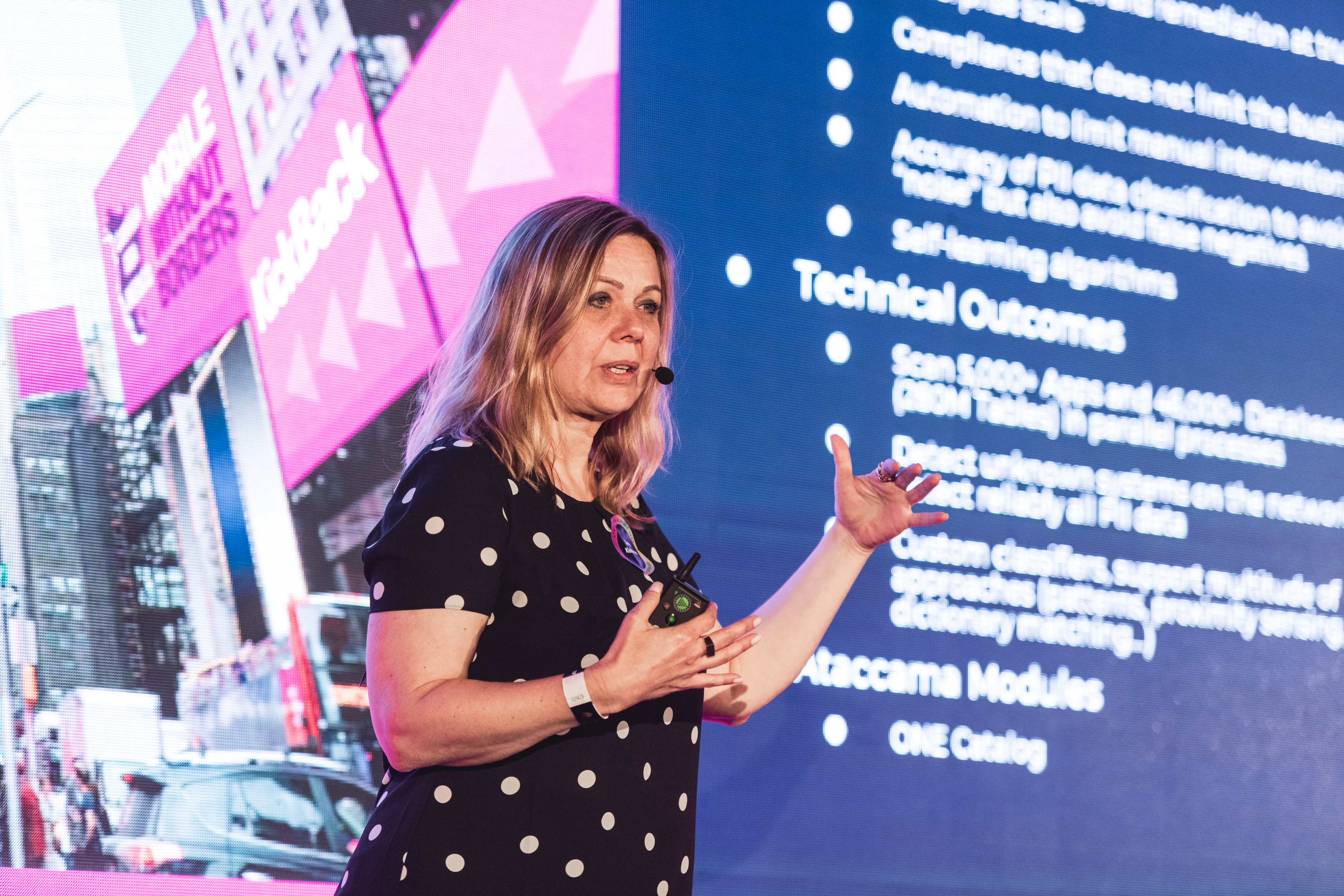
Sarka Klofacova - Chief Customer Officer & CEO APAC
What was your first job?
Before I started my “big girl” career, I had a few gigs that I'll always remember. One was stocking shelves at a grocery store, or chopping vegetables in a summer resort restaurant. Another job was folding up blow-up kiddie pools, basically tidying up the big mess of plastic into a cool display. I will never forget those!
What was the journey to your current role?
It has been quite the ride! Starting off as a PR professional, I was quickly drawn to the tech industry. Despite missing any tech-related background, I jumped headfirst into the world of tech, working in PR, later in marketing, sales, and general management. What really made my heart race was the opportunity to set up branches in new territories and open up fresh markets. I was unbelievably lucky to always have fantastic bosses along the way who trusted me to take on the challenge, and incredible colleagues to walk the journey with. It's been a wild ride, and I can't wait to see what the future holds!
What was it like for women in this industry when you first joined?
Since I've been in the industry for quite some time, let me take you on a trip down memory lane to the world of data management twenty years ago. Back then, the data management industry was a bit of a boy’s club - which probably won’t surprise you. Many women were around, but unfortunately back then they were a bit sidelined when it came to promotions and leadership opportunities.
What’s changed for women since you joined the workforce?
The barriers have been broken in my opinion (yay!) with so many fantastic women achievers proving every day that gender is just something and doesn’t define your potential. Let me cheer on all the awesome women in this awesome industry!
What advice would you give to young women starting their careers?
Firstly, congratulations on taking the first step towards achieving your dreams! Maybe the most important piece of advice from me would be to remember that your career is a journey to be lived, not achieved. Enjoy the ride, expect that there will be humps and mistakes made, and celebrate success and people around you along the way. Oh, and it doesn’t hurt focusing on delivering value, and quantifying the value you contribute to. You've got this, and there are a ton of women, myself included, rooting for you. Happy Women’s Day!

